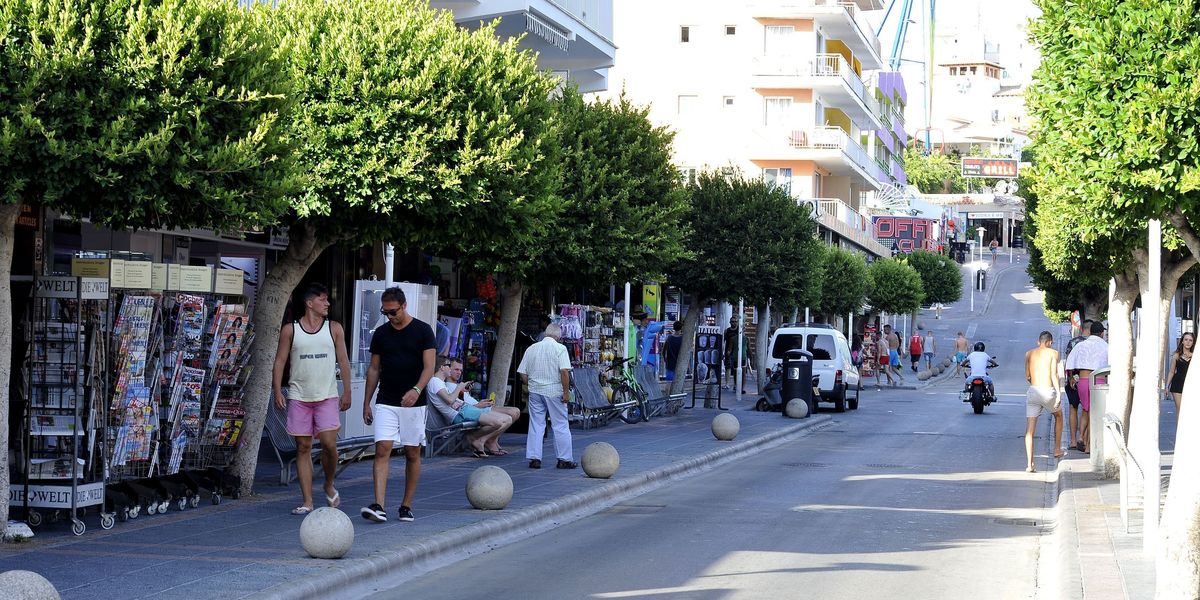The Boycott of Magaluf: A Summer of Discontent for British Tourists
Magaluf, a vibrant resort town on the island of Mallorca, has long been a favorite destination for British tourists seeking sun, sea, and a lively nightlife. However, this summer has seen an unexpected shift, with reports of an “unusually quiet” season leading to a significant boycott by British holidaymakers. As the sun-soaked streets of Magaluf remain eerily empty, the implications of this trend are being felt by local businesses and the tourism industry at large.
A Shift in Tourist Behavior
Traditionally bustling with bronzed Britons enjoying the Mediterranean sun, Magaluf has seen a stark decline in visitors this summer. Images of rows of empty sunbeds and vacant tables at once-bustling bars and restaurants have raised alarm among local business owners. The Majorca Daily Bulletin reported that the resort appeared “half empty, if that,” a concerning observation for an area that thrives on its summer tourism.
The decline in visitors seems to correlate with a series of protests that have erupted across the island, particularly in the capital, Palma. Demonstrators have been vocal about their frustrations regarding the housing crisis and the overwhelming presence of tourists, which they argue has led to overcrowding and a strain on local resources.
The Protests: A Call for Change
The protests, organized by groups like Mallorca Platja Tour, have gained momentum, with activists demanding immediate measures to address the issues facing both residents and tourists. Javier Barbero, one of the protest organizers, stated, “This has only just begun,” indicating that the movement is poised to continue until significant changes are made.
One of the more controversial remarks came from a local politician who suggested that residents could no longer expect access to public beaches during the high tourist season. This statement ignited further outrage, prompting demonstrators to reclaim public spaces and chant slogans like “Tourists go home.” The protests reflect a growing sentiment among locals who feel that the influx of tourists has overshadowed their rights and needs.
Economic Implications
Despite the visible decline in tourist activity in Magaluf, the broader picture for the Balearic Islands and Spain’s tourism sector remains complex. Data from the National Statistics Institute reveals that between January and July, Spain welcomed 53.4 million international visitors, marking a 12% increase from the previous year. Additionally, tourists contributed a staggering €71 billion to the Spanish economy during this period, an 18.6% rise compared to 2022.
Tourist Minister Jordi Hereu emphasized the importance of tourism to the national economy, stating that the increased spending by international travelers underscores the sector’s role in generating wealth and employment. This juxtaposition raises questions about the sustainability of tourism in areas like Magaluf, where local sentiment is increasingly at odds with economic reliance on visitors.
The Future of Magaluf
As the summer progresses, the future of Magaluf hangs in the balance. The boycott by British tourists, fueled by protests and local discontent, poses a significant challenge for bar and restaurant owners who depend on the seasonal influx of visitors. While the broader tourism statistics for Spain may paint a picture of growth, the local realities in Magaluf tell a different story—one of empty streets and a community grappling with the consequences of overtourism.
Local business owners are left to ponder the long-term effects of this boycott. Will the protests lead to meaningful changes that address the concerns of residents, or will they further alienate the very tourists that sustain the local economy? As the situation unfolds, it is clear that Magaluf is at a crossroads, and the decisions made in the coming months will shape the future of this once-thriving holiday hotspot.
Conclusion
The summer of 2023 has marked a turning point for Magaluf, as British tourists rally against what they perceive as a decline in the quality of their holiday experience. With protests highlighting the tensions between residents and tourists, the resort town faces an uncertain future. As the local economy grapples with the implications of a boycott, the need for dialogue and sustainable solutions has never been more pressing. Whether Magaluf can reclaim its status as a premier holiday destination will depend on the ability of all stakeholders to find common ground and address the underlying issues at play.
